The Myth of High-Maintenance Beauty
Vanity, for a long time, has been something of a two-party system: low-maintenance and high-maintenance. Before the "Which Sex and the City Character Are You?" quizzes, women were generally stuffed squarely into one of those two camps.
Low-maintenance, as depicted in a vignette, could be a dusty Chapstick rolling around the bottom of a purse with lost hair elastics; it’s beauty through the lens of utility, and self-effacing. To be a woman who conforms to a typically male timetable, never spending more time than the boys getting ready, who doesn't fuss with her appearance, implies that she's humble, agreeable, with more important things to do than primp.
How many times have you heard someone described as low-maintance and pictured a cool and easygoing girl, but one whose already considered conventionally beautiful, like the pre-plastic Cady Heron in Mean Girls. She's like every princess in every fairy tale who's born the most beautiful girl in all the land yet remains totally humble and unaware of it, even though she's constantly reminded of how beautiful she is. I'm not saying Belle from Beauty and the Beast wouldn't be just as literate, but I also don't think she'd spend every Saturday night alone at home reading books and fussing over her pa, "crazy ol' Maurice," you know?
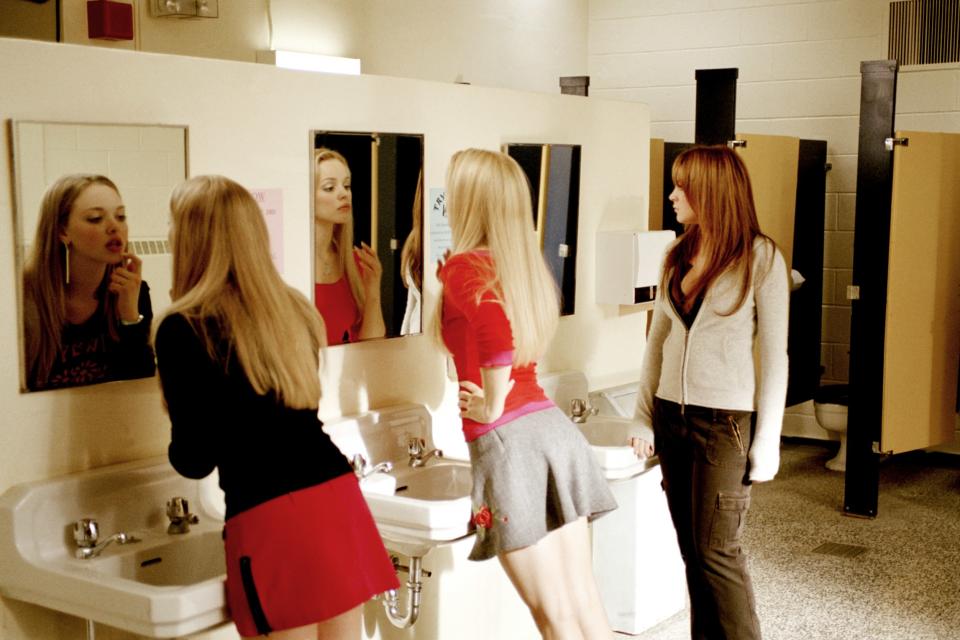
MEAN GIRLS
Courtesy Everett CollectionAnd then there's the foil, the "high-maintenance woman," who's quite the opposite — one who indulges all sorts of feminine adornment to an obsessive degree. Often portrayed by the villainess or the mean, popular girl in your high school, she's representative of all the other tropes that hover near the ruder end of some moral spectrum — demanding, vacuous, and vain. She's Regina George, authority of when you can and can't wear your hair in a ponytail, or to a much more fatal end, the demonically-possessed titular character in Jennifer's Body, who has to eat boys to stay beautiful so she can seduce more boys to eat.
Watching a very glamorous Goldie Hawn and Meryl Streep literally tearing each other to bits in Death Becomes Her after taking an immortality potion (the ultimate anti-ager, you could say) has always been the most macabre hyperbole of beauty when I was younger. That, or when the evil queen in Snow White is so determined to be the fairest one of all that she routinely sucks the life essence from young, beautiful virgins (in the more gruesome tellings of that tale) from neighboring villages — an extremely unsustainable skin-care routine, if you ask me.
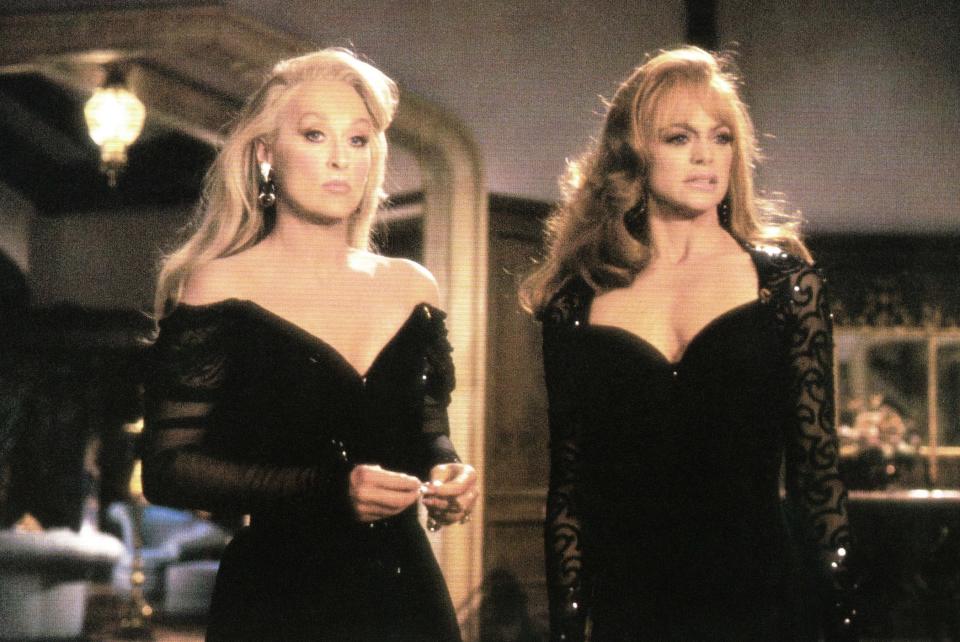
DEATH BECOMES HER, Meryl Streep, Goldie Hawn
Folklore and cinema would have us believe that beauty is worth killing for, and while it's entertaining to create satire from it, that belief is not without consequence. The moral implications clinging to a woman’s appearance and how she takes care of herself is problematic enough before even considering the pressures of conventional beauty standards and how they impact social acceptance, professional success, and even mental and emotional health.
Then, social media happened. The celebration of the authentic and unencumbered individual happened. The Kardashians happened, as did "French girl beauty." Maybe we all became bored with manicured perfection or otherwise fascinated with its construction, making behind-the-scenes beauty a new infatuation. We all want to know how to re-create a look we admire or at least know what was involved in it. I often wonder if Beyoncé realized what a cultural tipping point "I woke up like this" would become.
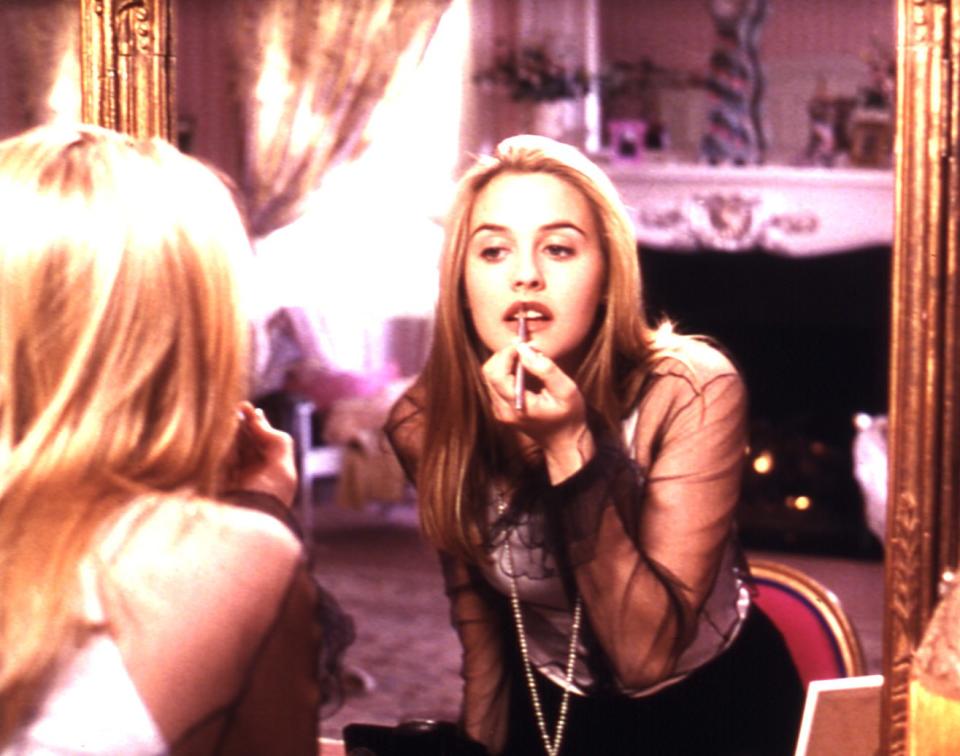
CLUELESS, Alicia Silverstone
Wearing “too much” makeup and spending “too much” time and money on hair and body grooming, to some, is assumed to be how women alter their appearance to try and appear sexually available to men (though, let’s be real: makeup and hairstyling are not the issue when it comes to male assumptions about a woman’s sexual availability). Since the beginning of time, a woman’s beauty has largely been deemed her most valuable and easiest-to-leverage trait, but it’s also seen as something that is not for her to decide for herself — it's nebulous at best and dangerous at worst.
For a while, I strived to be low-maintenance, despite the fact that my attention was always caught up in all things ornamental and a little extra. Later on, I realized that it wasn't the simple and convenient beauty routine I coveted so much as it was the implications of natural-born, effortless beauty that I'd been fixated with. I got into the beauty game late. I wasn’t allowed to wear makeup or color my hair until I was away at college (though I sneakily wore tinted lip gloss in high school). By default, I was the lowest-maintenance type there was, if only for the fact I had nothing to maintain. Because of that, I never take for granted having full creative control over my appearance now. When you are suddenly granted access to everything that was previously considered contraband, that power does not go unfelt.
A woman’s beauty has largely been considered her most valuable trait, but never one for her to decide for herself.
Despite the goading of pop culture, beauty never was and could never just be two things. The nature of high- and low-maintenance categorization mostly has served to stigmatize taking control of your own appearance. Whether you're keen on participating in conventional beauty standards that you benefit from (or are trying to benefit from), or your chosen appearance just takes a bit of time and thought, the amount of time and effort that goes into your appearance is no one's business but your own. At the bottom of it, makeup-shaming, body-trolling, and the otherwise narrow-sighted celebration of "natural beauty" all chafe at the concept of self-autonomy while existing within a system that doesn't actually have anyone's best interests in mind. TL;DR, it's a trap.
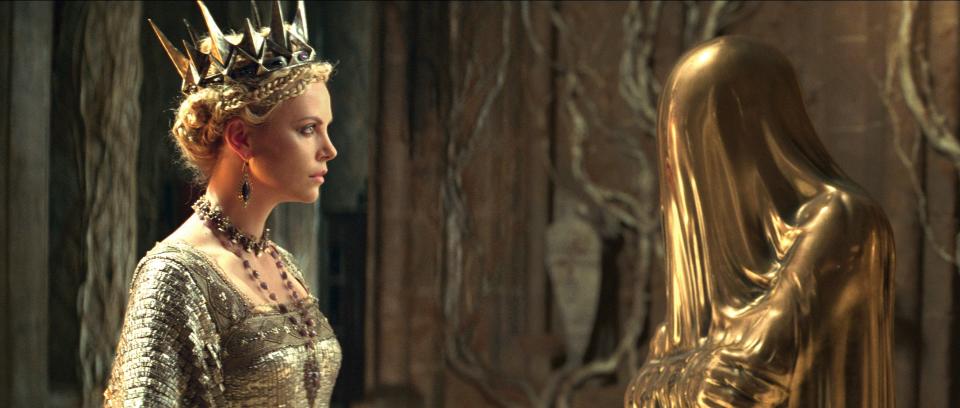
SNOW WHITE AND THE HUNTSMAN, Charlize Theron, 2012. ph: The Mill/©Universal Pictures/courtesy Everet
In this modern beauty landscape, however, concepts of high-maintenance and low-maintenance beauty are becoming more convoluted, despite themselves. No-makeup makeup, increasingly accessible and non-invasive plastic surgery treatments, and semi-permanent makeup have become way more common, thanks to social media.
Botox and filler, lash extensions, and microblading would be considered very high-maintenance, if only because they're expensive to do and way more extreme than just painting on makeup. However, taking those "extreme" measures so it can expedite your daily beauty routine champions the idea of being low-maintenance, just at a premium.
Sure, it may cause you to question what's even real anymore, but the same way that social media skews your perspective of how people really look, it also introduces you to countless possibilities for how people could look.
Evaluating women by their level of maintenance at all is completely reductive and irrelevant — we’re not appliances.
Here's the thing, though: Women don't need maintenance; we’re not appliances. Low or high, maintenance shouldn't mean that self-care is indulgent and self-expression is burdensome. I just want to wear makeup and do my hair however I want without it determining my level of manageability and everything else that comes with it.
Dolly Parton espoused that there’s no such thing as natural beauty (well, her character in Steel Magnolias did, but I think she'd agree), and beloved as she is, no one would accuse Dolly of being low-maintenance. Her glamour is a full-on, unapologetic breed, one that’s served warm with a heap of charm, talent, and wit. “If I’m gonna have any looks at all, I’m gonna have to create them,” she’s quoted as saying. It’s an anthem that could very well be the re-branding of high-maintenance.
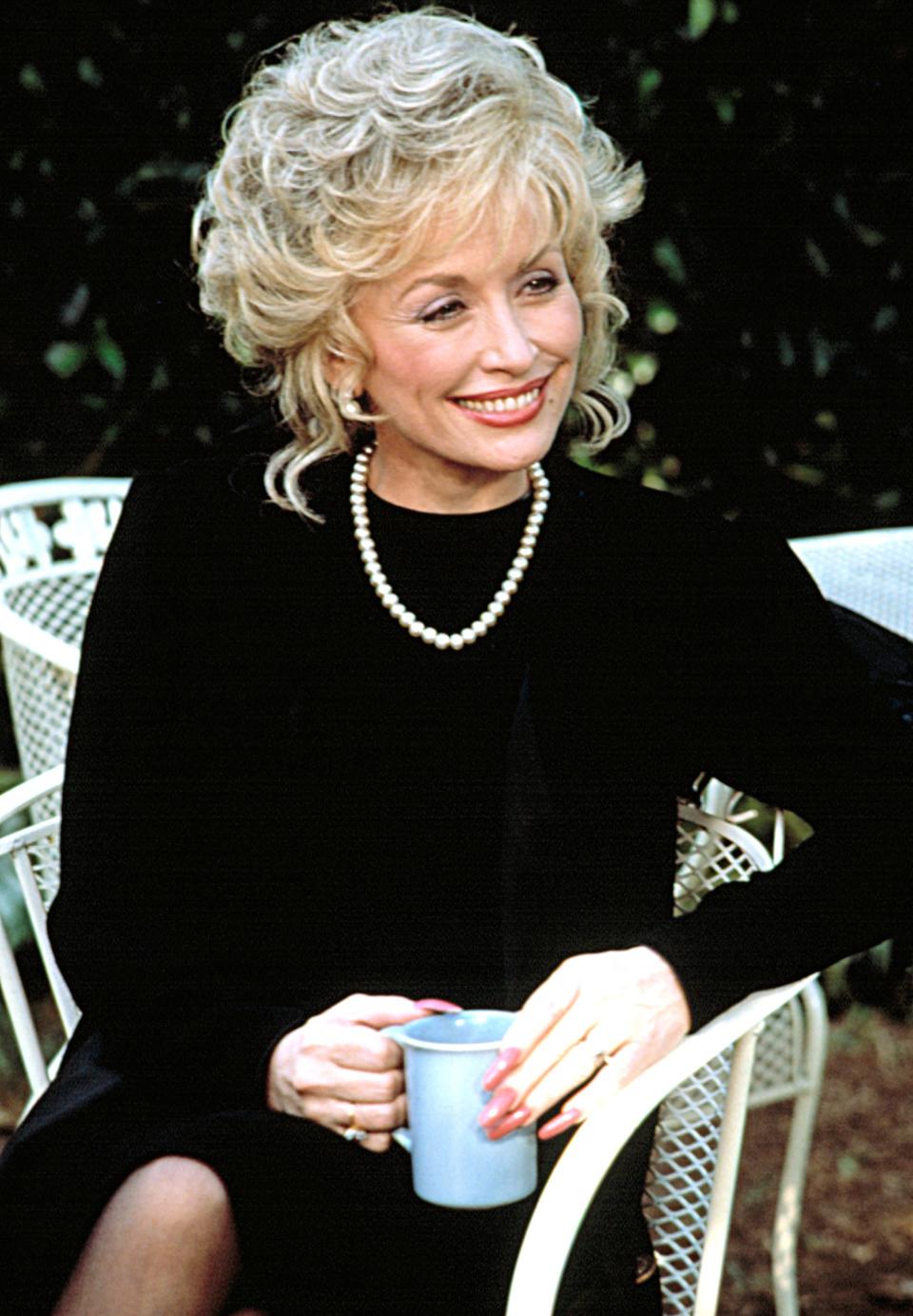
STEEL MAGNOLIAS, Dolly Parton
Courtesy Everett CollectionWhen you've got beauty on the brain:
Why Beauty Has Been the Safest Space to Explore My Gender Identity
Bonding Over Makeup Gave Me Confidence As a 13-Year-Old Trans Girl
Watch how one Allure editor does beauty on the go:

